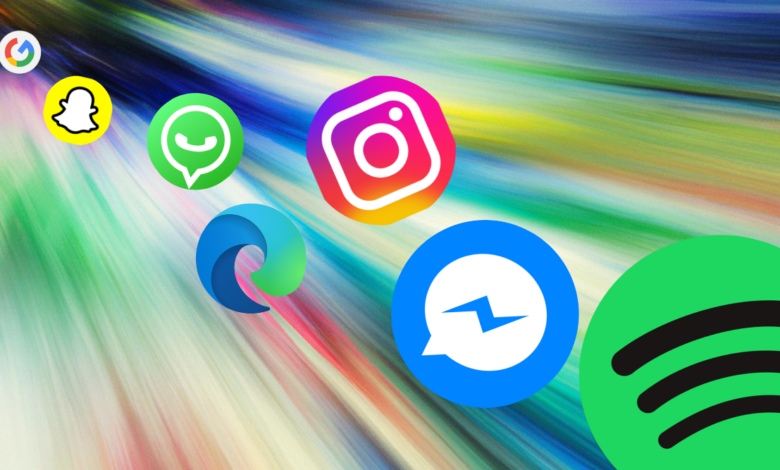Are Third Party Apps illegal?

In the digital age, mobile applications have become an essential part of our lives. While official app stores like Google Play Store and Apple App Store offer a wide range of apps, some users may be drawn to third-party apps that are not available on these platforms. However, it is important to understand the legality and potential risks associated with third-party apps. In this article, we will explore the legal aspects of third-party apps and shed light on the risks involved.
Introduction
Third-party apps are applications that are not officially distributed through authorized app stores. These apps can be found on various websites, alternative app stores, or shared among users through file-sharing platforms. While third-party apps may offer unique features or access to exclusive content, it is crucial to consider the legal implications of using them.
Visit Also : How Do I Check If I Have a Third Party App Store?
Understanding Third-Party Apps
Third-party apps are typically developed by individuals or organizations outside the official app store ecosystem. These apps can range from modified versions of popular applications to entirely new apps that offer functionalities not available on official platforms. Users are often attracted to third-party apps for their customization options, additional features, or access to premium content for free.
Legality of Third-Party Apps
The legality of third-party apps can vary depending on various factors, including copyright infringement and violations of app store terms of service. Here are some key considerations:
Copyright Infringement
One of the primary concerns surrounding third-party apps is copyright infringement. Many third-party apps offer modified versions of popular applications, which may include unauthorized changes or access to premium features without proper licensing. Downloading and using such apps can be considered a violation of copyright laws in many jurisdictions.
Terms of Service Violations
Official app stores have specific terms of service that developers and users must adhere to. Third-party apps often bypass these terms and provide access to content or features that would otherwise be restricted. Using third-party apps that violate app store terms of service can result in legal consequences and the termination of user accounts.
Security and Privacy Risks
Another aspect to consider is the potential security and privacy risks associated with third-party apps. Since these apps are not subject to the same level of scrutiny and review as official apps, they may contain malware, viruses, or other malicious elements that can compromise the user’s device or personal information. Installing apps from unknown sources can expose users to significant risks.
Risks of Using Third-Party Apps
While third-party apps may offer enticing features, it is crucial to be aware of the potential risks involved. Here are some common risks associated with using third-party apps:
Malware and Viruses
Due to the lack of strict oversight and security measures, third-party apps can be a breeding ground for malware and viruses. Malicious developers may distribute infected apps that can harm users’ devices, steal personal information, or perform unauthorized activities.
Data Security
Third-party apps often require extensive access to a user’s device, including sensitive data and permissions. This can pose a significant risk to data security, as these apps may misuse or mishandle personal information. Users should be cautious when granting permissions and only install apps from trusted sources.
Lack of Official Support
Official app stores provide users with a level of support and assurance. However, when using third-party apps, users often lack official support for issues, updates, or bug fixes. This can result in a frustrating user experience and potential security vulnerabilities, as the apps may not receive timely security patches.
Conclusion
While third-party apps may offer unique features or access to exclusive content, users should be cautious about the legal implications and associated risks. It is important to understand copyright laws, app store terms of service, and the potential security and privacy risks before using third-party apps. By prioritizing security, adhering to intellectual property rights, and relying on trusted sources, users can make informed choices about the apps they install on their devices.
Frequently Asked Questions
Q1. Are all third-party apps illegal?
Not all third-party apps are illegal. However, many third-party apps infringe upon copyright laws or violate app store terms of service, making them illegal to use.
Q2. Can I get in legal trouble for using third-party apps?
Using third-party apps that infringe upon copyright or violate app store terms of service can potentially lead to legal consequences, such as lawsuits or termination of user accounts.
Q3. How can I ensure the safety of third-party apps?
To ensure the safety of third-party apps, only download from trusted sources, research the developer, read user reviews, and use reliable antivirus software to scan the apps before installation.
Q4. Can third-party apps harm my device?
Yes, third-party apps can potentially harm your device by containing malware, viruses, or unauthorized scripts that compromise your device’s security and privacy.
Q5. Are there any legal alternatives to third-party apps?
Yes, official app stores like Google Play Store and Apple App Store provide a wide range of apps that are legal and adhere to copyright laws and terms of service.
Sources:





